CALL TODAY 646-846-1136 | EMAIL
Surgical Experts Dedicated to Improving Lives
At Lenox Hill Minimally Invasive Surgery PLLC, Dr. Valery Dronsky and his staff of medical professionals provide compassionate care with the highest ethical & professional standards. In our state of the art facility, we offer surgical services using only the most cutting edge and current procedures and treatments. We specialize in general surgery, including extensive experience in performing hernia repair surgery. Our expertise is in minimally invasive surgery and robotic surgery. Minimally invasive and robotic surgery often allow patients to experience easier recovery than traditional open surgery. They also allow for more precise and less traumatic surgery. When robotic and minimally invasive surgery is not an option, we are also skilled and experienced in traditional open surgical procedures.
Dr. Dronsky is an experienced and highly skilled surgeon having undergone extensive training in school, residency and fellowships. He practices medicine with ethical behavior, compassion and superb bedside manner. In the operating room he exhibits precision mechanical abilities, analytical thinking and the ability to visualize tissue in three dimensions. These innate and learned skills allow Dr. Dronsky to be one of the most dexterous and skilled professionals in New York City and the Country.
Call us: 646-846-1136
PATIENT TESTIMONIALS
Recent Awards
We are honored and deeply appreciative to have consistently received prestigious awards and recognition year after year, establishing us as one of New York’s foremost hospitals for a wide range of general surgeries, safety measures, specialized procedures, and overall excellence in healthcare. At Lenox Hill Minimally Invasive Surgery, our unwavering commitment lies in delivering exceptional care and unwavering support to our patients, guaranteeing their safety and successful recovery throughout their entire surgical experience.
Hospital Quality Awards
 America’s 50 Best Hospitals Award™ (2023, 2022)
America’s 50 Best Hospitals Award™ (2023, 2022)
Top 1% in the nation for providing the highest clinical quality year over year.

America’s 100 Best Hospitals Award™ (2021)
Top 2% in the nation for consistently delivering clinical quality year over year.

America’s 250 Best Hospitals Award™ (2023, 2022, 2021)
Top 5% in the nation for consistently delivering clinical quality.

Patient Safety Excellence Award™ (2023, 2022)
Top in the nation for providing excellence in patient safety by preventing infections, medical errors, and other preventable complications.
Specialty Clinical Quality Awards

America’s 100 Best Hospitals for Cardiac Care Award™ (2023, 2022, 2021, 2020, 2019)
Superior clinical outcomes in heart bypass surgery, coronary interventional procedures, heart attack treatment, heart failure treatment, and heart valve surgery.

America’s 100 Best Hospitals for Coronary Intervention Award™ (2023, 2022, 2021, 2020, 2019)
Superior clinical outcomes in coronary intervention procedures (angioplasty with stent).

America’s 100 Best Hospitals for Prostate Surgery Award™ (2023, 2022, 2021)
Superior clinical outcomes in prostate removal surgery and transurethral resection of the prostate.
Click to see all of our Healthgrades best doctors awards
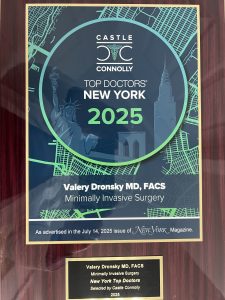
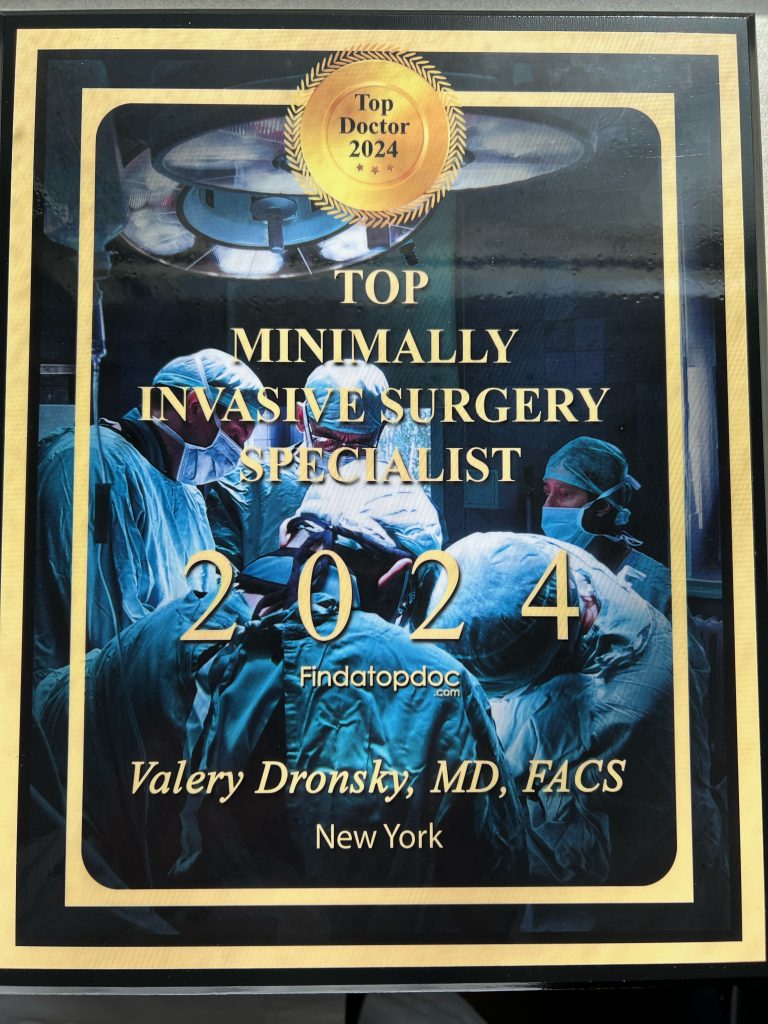
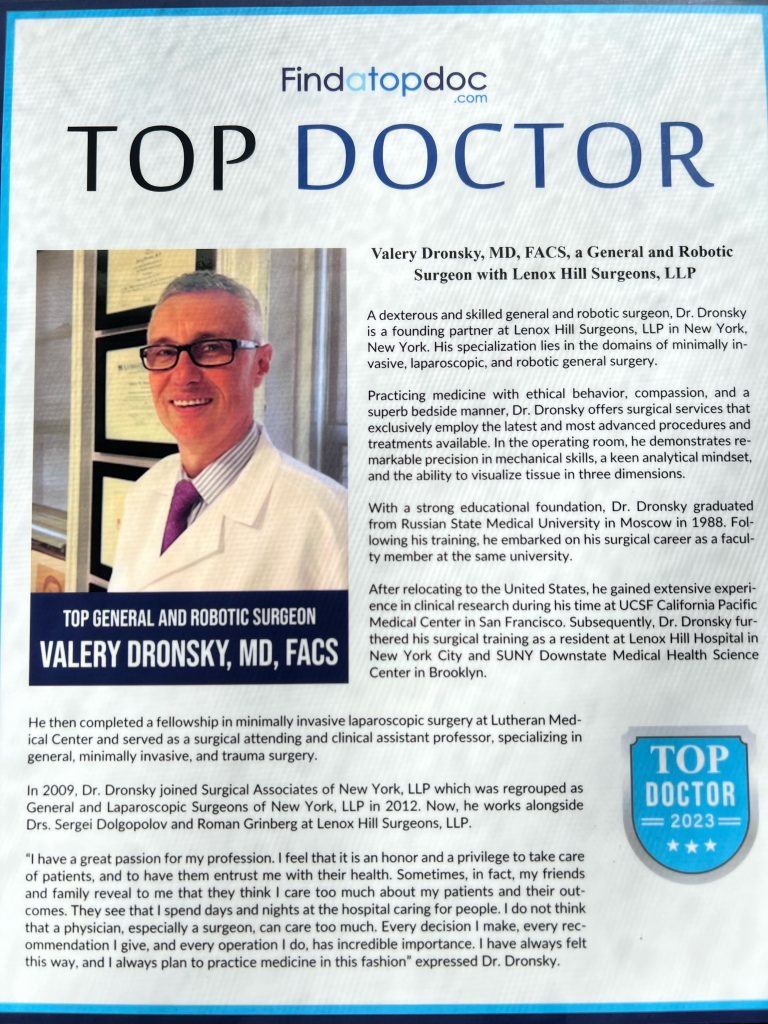


Visit our main website at www.LenoxHillMinimallyInvasiveSurgery.com
Blog Posts are Below:
Author Archives: Lawrence Silverberg
Gallbladder Surgery in NYC: Is Laparoscopic Cholecystectomy Right for You?
Thanks to modern advances, the most common and effective method today for gallbladder removal surgery is laparoscopic cholecystectomy—a minimally invasive approach offering faster recovery and less pain. Gallbladder issues, such as gallstones or inflammation, can cause persistent abdominal pain and digestive disturbances. If you’ve been diagnosed with gallbladder disease and conservative treatments haven’t worked, your doctor may recommend gallbladder removal surgery, known as a cholecystectomy.
If you’re considering gallbladder surgery in NYC, this guide will help you understand whether laparoscopic cholecystectomy is the right choice for you.

What Is the Gallbladder and Why Is It Removed?
The gallbladder is a small, pear-shaped organ located beneath the liver. It stores bile—a digestive fluid produced by the liver—and releases it into the small intestine to help break down fats.
However, the gallbladder isn’t essential to digestion. When it becomes diseased or develops stones that block bile flow, removing it is often the most effective solution.
Common Conditions Requiring Gallbladder Surgery
Gallbladder removal may be recommended for:
- Gallstones (cholelithiasis): Hardened deposits of bile that can block ducts and cause pain
- Cholecystitis: Inflammation of the gallbladder, often due to gallstones
- Biliary dyskinesia: Poor function of the gallbladder leading to chronic pain
- Gallbladder polyps or tumors: Abnormal growths requiring removal for further evaluation
- Pancreatitis due to gallstones: Inflammation of the pancreas triggered by a blocked bile duct
If these conditions cause ongoing pain, nausea, vomiting, or digestion problems, surgery is typically the most effective treatment.
What Is Laparoscopic Cholecystectomy?
Laparoscopic cholecystectomy is a minimally invasive procedure to remove the gallbladder using small incisions and a tiny camera called a laparoscope. It has become the standard approach for gallbladder removal due to its safety and faster recovery.
Procedure Overview:
- Four small incisions (usually under 1 inch each) are made in the abdomen
- A laparoscope provides high-definition imaging to guide the surgeon
- Special instruments are used to detach and remove the gallbladder
- The incisions are closed with sutures or surgical glue
- Most patients go home the same day
Benefits of Laparoscopic Gallbladder Surgery
Compared to open surgery, laparoscopic cholecystectomy offers several key advantages:
- Less postoperative pain
- Shorter hospital stay (often outpatient)
- Faster return to normal activities (usually within 1–2 weeks)
- Smaller scars and improved cosmetic outcomes
- Lower risk of infection and complications
This approach is particularly well-suited for patients in busy urban settings like NYC, where a faster recovery can mean less time off work or away from family responsibilities.
Who Is a Candidate for Laparoscopic Cholecystectomy?
Most patients diagnosed with gallbladder disease are eligible for laparoscopic surgery. However, certain factors may affect your candidacy:
- Previous abdominal surgeries causing scar tissue
- Severe inflammation or infection (may require open surgery)
- Bleeding disorders or other high-risk medical conditions
- Pregnancy (in select cases, surgery may still be performed safely)
Your surgeon will conduct a full evaluation to determine the safest and most effective approach for your condition.
What to Expect During Recovery
Recovery after laparoscopic gallbladder removal is generally smooth and quick.
- Most patients return home within a few hours after surgery
- Light activities can resume within a few days
- Most people return to work within 1–2 weeks
- You may experience mild bloating or soreness near the incision sites
- Dietary adjustments may be recommended to ease digestion initially
Follow-up appointments help ensure proper healing and monitor for any complications.
Are There Any Risks or Complications?
Laparoscopic cholecystectomy is a safe and commonly performed procedure, but like all surgeries, it carries some risks, including:
- Bleeding or infection
- Bile duct injury (rare)
- Reaction to anesthesia
- Residual bile duct stones requiring further treatment
These risks are minimized when the procedure is performed by an experienced surgeon in a well-equipped facility.
Conclusion: Is Laparoscopic Cholecystectomy Right for You?
If you’re suffering from gallstones or gallbladder inflammation, laparoscopic cholecystectomy may be your best path to lasting relief. It’s safe, effective, and minimally disruptive—especially when performed by a skilled surgical team in NYC.
Don’t wait for your symptoms to worsen. Early evaluation and timely treatment can prevent serious complications and help you return to a pain-free, healthy lifestyle.
Contact Information
LENOX HILL MINIMALLY INVASIVE SURGERY LLP
155 East 76th Street
New York, NY 10021
Tel: 646-846-1136
Email: lenoxhillsurgeons@gmail.com
Umbilical and Incisional Hernias: When Is Surgery Necessary?
Hernias can develop in various parts of the abdominal wall, and two of the most frequently encountered types are umbilical hernias and incisional hernias. While both involve a bulge or protrusion of tissue through a weakened area in the abdominal muscles, their causes and treatment approaches differ. Understanding when surgery is necessary for these types of hernias is essential to prevent complications and ensure long-term health.
This guide will help you recognize the signs, understand the risks, and explore the surgical options available for umbilical and incisional hernias—especially using modern minimally invasive techniques.
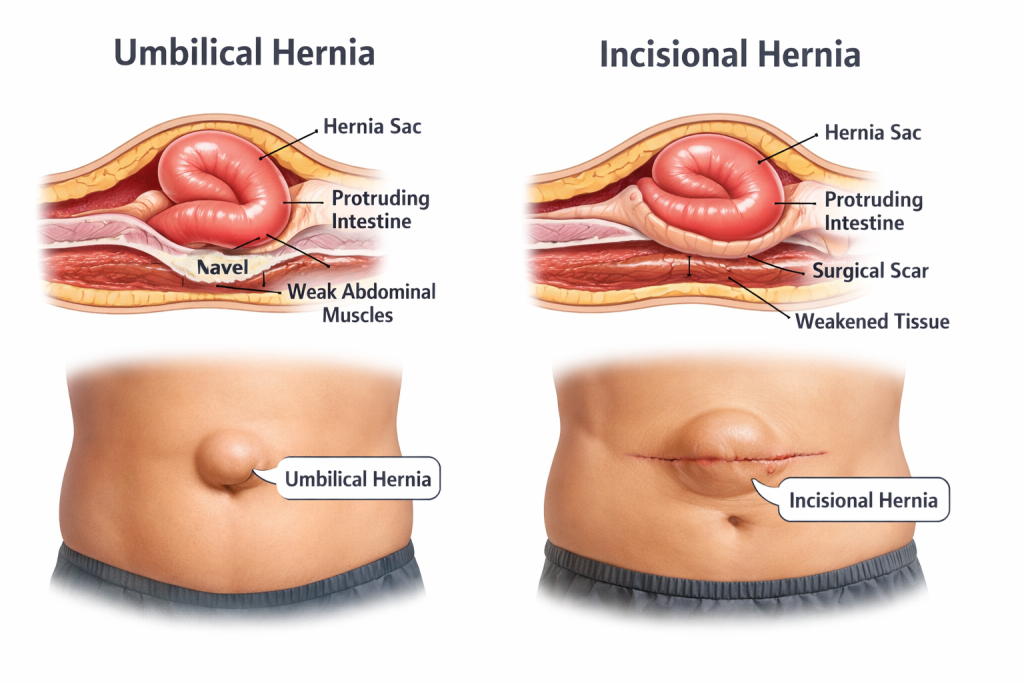
What Is an Umbilical Hernia?
An umbilical hernia occurs when part of the intestine or fatty tissue protrudes through the abdominal wall near the belly button (umbilicus). This type of hernia is common in infants but also affects adults, particularly women who have experienced multiple pregnancies or people who are overweight.
Common Causes:
- Congenital weakness in the abdominal wall
- Pregnancy or multiple pregnancies
- Obesity and weight gain
- Heavy lifting or straining
In adults, umbilical hernias are less likely to resolve on their own and often require surgical correction.
What Is an Incisional Hernia?
An incisional hernia develops at the site of a previous surgical incision where the abdominal wall hasn’t fully healed. This type of hernia can occur weeks, months, or even years after surgery.
Risk Factors:
- Infection or poor wound healing after initial surgery
- Obesity or excessive strain on the surgical site
- Multiple abdominal surgeries
- Smoking or chronic diseases that impair healing
Incisional hernias can become large and uncomfortable, often requiring surgical repair to restore function and prevent complications.
Signs and Symptoms of Both Hernia Types
Regardless of the type, umbilical and incisional hernias tend to present with similar symptoms:
- A visible bulge near the belly button or previous surgical site
- Pain or pressure, especially when lifting, bending, or coughing
- A feeling of weakness or heaviness in the abdominal wall
- Redness, swelling, or tenderness in the hernia area (especially if strangulated)
- Nausea or vomiting if intestinal obstruction is present
If the hernia cannot be pushed back in or causes severe pain and discoloration, this could indicate strangulation—a serious condition requiring emergency surgery.
When Is Surgery Necessary?
Not all hernias require immediate surgery, but several factors make surgical repair the best option:
- The hernia is growing or becoming more painful
- Daily activities are impacted by discomfort or pressure
- There’s a risk of incarceration (trapped tissue) or strangulation (cut-off blood supply)
- The hernia is irreducible (cannot be pushed back in)
- Cosmetic or lifestyle concerns motivate the patient to seek repair
In adults, umbilical hernias rarely close on their own. Similarly, incisional hernias do not improve without intervention and often worsen over time.
Surgical Options: Open vs. Minimally Invasive Repair
There are two primary surgical techniques for repairing umbilical and incisional hernias:
1. Open Hernia Repair
- Traditional approach with a single incision over the hernia site
- Surgeon returns the protruding tissue to the abdomen and closes the defect, often using mesh for reinforcement
- May be recommended for large or complex hernias
2. Laparoscopic or Robotic-Assisted Hernia Repair
- Minimally invasive approach using several small incisions and a camera
- Surgeon places mesh from the inside to reinforce the abdominal wall
- Offers faster recovery, less post-operative pain, and lower infection risk
Your surgeon will recommend the best approach based on the hernia’s size, location, your medical history, and lifestyle.
Recovery After Surgery
Most patients return home the same day, especially with laparoscopic surgery. Recovery tips include:
- Avoid lifting heavy objects for at least 4–6 weeks
- Follow a high-fiber diet to prevent straining during bowel movements
- Monitor for signs of infection or recurrence
- Gradually increase activity as advised by your surgeon
Follow-up visits are essential to monitor healing and ensure the hernia repair is successful.
Conclusion: Don’t Delay Hernia Evaluation
Umbilical and incisional hernias can seem minor at first but tend to worsen over time. If you’re experiencing bulging, discomfort, or pressure in your abdominal area, it’s important to seek a professional evaluation. Minimally invasive surgical techniques make hernia repair safer and more efficient than ever, with less downtime and improved outcomes.
Contact Information
LENOX HILL MINIMALLY INVASIVE SURGERY LLP
155 East 76th Street
New York, NY 10021
Tel: 646-846-1136
Email: lenoxhillsurgeons@gmail.com
Understanding Inguinal Hernias: Causes, Symptoms, and Surgical Options
Inguinal hernias are among the most common types of hernias, particularly affecting men. They occur when a portion of the intestine or abdominal tissue protrudes through a weakened area in the lower abdominal wall, often near the inguinal canal. While some inguinal hernias may cause minimal discomfort initially, they can enlarge over time and lead to serious complications if left untreated.
This guide explores the causes, symptoms, diagnosis, and treatment options for inguinal hernias, especially the benefits of surgical repair using minimally invasive techniques.
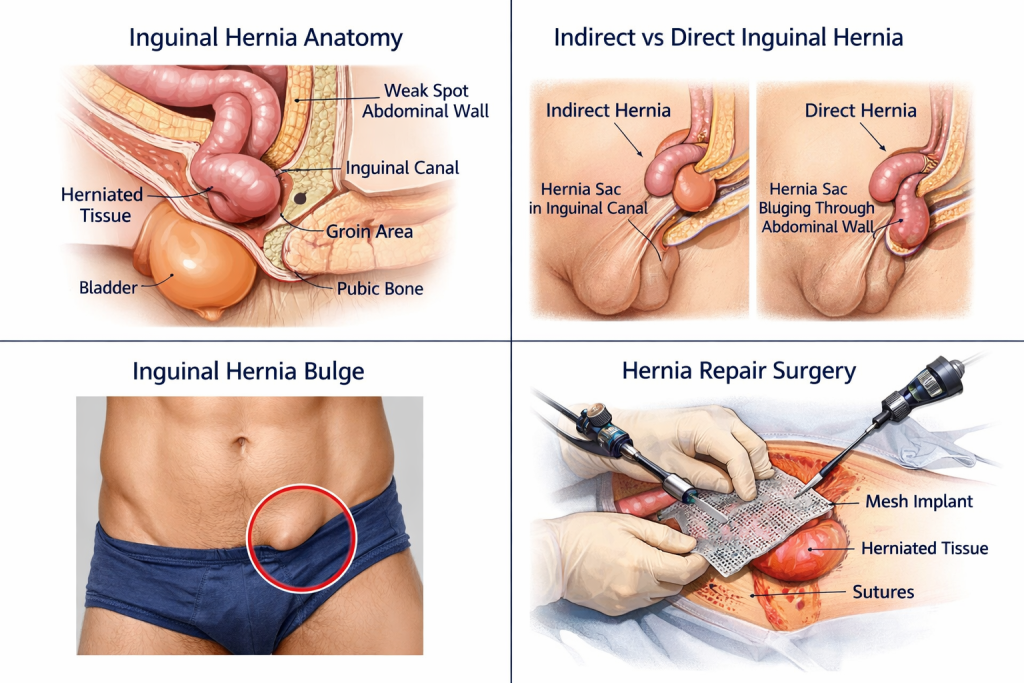
What Causes an Inguinal Hernia?
Inguinal hernias develop when the muscles of the abdominal wall weaken or experience increased pressure, allowing internal tissue to push through.
- Congenital defects: Some people are born with a weakness in the abdominal wall that makes them more susceptible to hernias.
- Chronic straining: Straining from heavy lifting, persistent coughing, or constipation increases pressure inside the abdomen.
- Aging: Muscle strength naturally decreases with age, making older adults more vulnerable to hernias.
- Obesity: Excess body weight adds pressure on the abdominal muscles, contributing to hernia formation.
- Previous surgeries: Surgical incisions or scar tissue may weaken the abdominal wall, allowing hernias to develop.
Men are significantly more likely to develop inguinal hernias than women, due to anatomical differences and the presence of the spermatic cord passing through the inguinal canal.
Recognizing the Symptoms of an Inguinal Hernia
Symptoms of an inguinal hernia can range from mild to severe and may include:
- A noticeable bulge on one or both sides of the groin, which becomes more prominent when standing or straining
- Discomfort, heaviness, or aching in the groin area
- Pain when coughing, bending over, or lifting heavy objects
- Burning or pressure in the groin
- Swelling around the testicles in men, if the hernia descends into the scrotum
In some cases, the hernia may be reducible—meaning it can be gently pushed back into the abdomen. However, a strangulated hernia (where blood supply is cut off) is a medical emergency and may present with:
- Sudden, intense groin pain
- Redness or discoloration of the bulge
- Fever or nausea
- Inability to pass gas or have a bowel movement
If these symptoms occur, immediate surgical attention is required.
How Inguinal Hernias Are Diagnosed
A diagnosis is typically made through a physical examination. During the exam, the surgeon may ask you to stand and cough to make the hernia more visible. Imaging studies, such as an ultrasound or CT scan, may be used to confirm the diagnosis or assess the hernia’s size and contents.
Treatment Options for Inguinal Hernias
While small, asymptomatic hernias may be monitored, surgery is the definitive treatment for inguinal hernias. Surgical repair is recommended for:
- Persistent pain or discomfort
- Rapidly enlarging hernia
- Impairment in daily activities
- Risk of complications like incarceration or strangulation
Surgical Approaches
There are two main types of hernia repair surgery:
- Open hernia repair: A single incision is made in the groin to push the protruding tissue back and reinforce the abdominal wall with mesh.
- Laparoscopic or robotic-assisted repair: Multiple small incisions are used to insert a camera and instruments. The hernia is repaired from inside the abdomen using mesh reinforcement.
Minimally invasive techniques offer several advantages:
- Smaller incisions and less scarring
- Reduced postoperative pain
- Shorter recovery time and faster return to normal activities
- Lower risk of infection and complications
Your surgeon will determine the best approach based on your medical history, the size and type of hernia, and overall health.
Recovery After Inguinal Hernia Surgery
Most patients recover quickly after minimally invasive hernia repair. Common post-op recommendations include:
- Light activity within a few days
- Avoiding heavy lifting for 4–6 weeks
- Using over-the-counter or prescribed pain medication as needed
- Monitoring for signs of infection or recurrence
Follow-up appointments help ensure proper healing and assess for any complications.
Conclusion: Don’t Ignore the Signs of a Hernia
Inguinal hernias are common and often manageable, but they do not resolve on their own. If you suspect you have a hernia, it’s essential to seek evaluation from an experienced general surgeon. With today’s advanced surgical options, most patients experience excellent outcomes and can return to their daily routines with confidence and comfort.
Contact Information
LENOX HILL MINIMALLY INVASIVE SURGERY LLP
155 East 76th Street
New York, NY 10021
Tel: 646-846-1136
Email: lenoxhillsurgeons@gmail.com
Visit us online: https://www.lenoxhillminimallyinvasivesurgery.com
The Benefits of Having Surgery at a New York City Practice
 Here we will explore the nuances of the benefits of having surgery at a new york city practice and what patients need to know. Surgical procedures are a critical component of modern medicine, addressing a wide range of health concerns. Whether you’re preparing for surgery or considering your options, understanding the process and the latest advancements can help you make informed decisions.
Here we will explore the nuances of the benefits of having surgery at a new york city practice and what patients need to know. Surgical procedures are a critical component of modern medicine, addressing a wide range of health concerns. Whether you’re preparing for surgery or considering your options, understanding the process and the latest advancements can help you make informed decisions.
Why Surgery is Recommended
Surgery can address a variety of medical issues, from life-saving interventions to elective procedures that improve quality of life. It’s important for patients to understand why their doctor may recommend surgery and what outcomes they can expect.
How to Prepare for a Medical Procedure
- Know Your Procedure: Researching the specific type of surgery you’re undergoing helps reduce anxiety and allows you to ask informed questions during consultations.
- Follow Preoperative Instructions: Surgeons typically provide guidelines such as fasting before surgery or adjusting medications. Adhering to these instructions is crucial for safety.
- Plan for Recovery: Consider who will assist you after surgery, whether it’s arranging transportation or having someone help with daily tasks during your recovery period.
The Advantages of Minimally Invasive Surgery
Minimally invasive surgery has revolutionized how procedures are performed, offering patients faster recovery times and fewer complications. These techniques often involve smaller incisions, reduced scarring, and a quicker return to normal activities.
The Role of Regular Health Screenings
Screening is a cornerstone of preventive healthcare. Procedures like colonoscopies can detect issues such as polyps or colorectal cancer early, significantly improving treatment outcomes. Regular health check-ups and open communication with your healthcare provider are essential for staying proactive about your health.
Steps for a Quick Recovery
Recovering from surgery requires patience and adherence to your doctor’s recommendations. Here are some general tips to ensure a smooth recovery:
- Follow Discharge Instructions: Carefully read and follow the post-operative care guidelines provided by your surgeon.
- Stay Active (But Don’t Overdo It): Gentle movement, as recommended, can help prevent blood clots and improve healing.
- Eat a Balanced Diet: Proper nutrition supports your body’s recovery process, promoting faster healing.
Key Questions to Ask Before Surgery
Before undergoing any surgical procedure, it’s important to have a thorough discussion with your surgeon. Key topics to cover include:
- The risks and benefits of the procedure.
- What to expect during the recovery period.
- Alternative treatments, if available.

Benefits of Having Surgery at a New York City Practice: Contact Us Today
Surgery in NYC has never been more accessible. Contact Lenox Hill Minimally Invasive Surgery LLP for expert care tailored to your needs.
LENOX HILL MINIMALLY INVASIVE SURGERY LLP
155 East 76th Street
New York, NY 10021
Tel: 646-846-1136
Email: lenoxhillsurgeons@gmail.com
Addressing Colorectal Health: Procedures and Prevention
This blog explores the nuances of addressing colorectal health procedures and prevention and what patients need to know. Surgical procedures are a critical component of modern medicine, addressing a wide range of health concerns. Whether you’re preparing for surgery or considering your options, understanding the process and the latest advancements can help you make informed decisions.
Exploring the Need for Surgery
Surgery can address a variety of medical issues, from life-saving interventions to elective procedures that improve quality of life. It’s important for patients to understand why their doctor may recommend surgery and what outcomes they can expect.
Getting Ready for Your Operation
- Know Your Procedure: Researching the specific type of surgery you’re undergoing helps reduce anxiety and allows you to ask informed questions during consultations.
- Follow Preoperative Instructions: Surgeons typically provide guidelines such as fasting before surgery or adjusting medications. Adhering to these instructions is crucial for safety.
- Plan for Recovery: Consider who will assist you after surgery, whether it’s arranging transportation or having someone help with daily tasks during your recovery period.
Revolutionary Minimally Invasive Options
Minimally invasive surgery has revolutionized how procedures are performed, offering patients faster recovery times and fewer complications. These techniques often involve smaller incisions, reduced scarring, and a quicker return to normal activities.
How Early Detection Impacts Surgery
Screening is a cornerstone of preventive healthcare. Procedures like colonoscopies can detect issues such as polyps or colorectal cancer early, significantly improving treatment outcomes. Regular health check-ups and open communication with your healthcare provider are essential for staying proactive about your health.
Nutrition and Exercise After Surgery
Recovering from surgery requires patience and adherence to your doctor’s recommendations. Here are some general tips to ensure a smooth recovery:
- Follow Discharge Instructions: Carefully read and follow the post-operative care guidelines provided by your surgeon.
- Stay Active (But Don’t Overdo It): Gentle movement, as recommended, can help prevent blood clots and improve healing.
- Eat a Balanced Diet: Proper nutrition supports your body’s recovery process, promoting faster healing.
Understanding Surgical Risks and Alternatives
Before undergoing any surgical procedure, it’s important to have a thorough discussion with your surgeon. Key topics to cover include:
- The risks and benefits of the procedure.
- What to expect during the recovery period.
- Alternative treatments, if available.
Colorectal Health Procedures and Prevention: Contact Us Today
Lenox Hill Minimally Invasive Surgery LLP specializes in colorectal procedures that prioritize your health and well-being.
Call us to schedule your consultation.
LENOX HILL MINIMALLY INVASIVE SURGERY LLP
155 East 76th Street
New York, NY 10021
Tel: 646-846-1136
Email: lenoxhillsurgeons@gmail.com
Common Questions About Gallbladder Surgery Answered
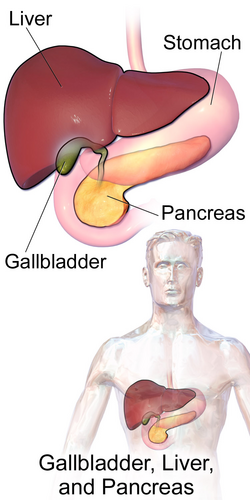 This blog explores the nuances of common questions about gallbladder surgery answered and what patients need to know. Surgical procedures are a critical component of modern medicine, addressing a wide range of health concerns. Whether you’re preparing for surgery or considering your options, understanding the process and the latest advancements can help you make informed decisions.
This blog explores the nuances of common questions about gallbladder surgery answered and what patients need to know. Surgical procedures are a critical component of modern medicine, addressing a wide range of health concerns. Whether you’re preparing for surgery or considering your options, understanding the process and the latest advancements can help you make informed decisions.
What Makes a Procedure Necessary
Surgery can address a variety of medical issues, from life-saving interventions to elective procedures that improve quality of life. It’s important for patients to understand why their doctor may recommend surgery and what outcomes they can expect.
Preparation Tips for Better Surgical Outcomes
- Know Your Procedure: Researching the specific type of surgery you’re undergoing helps reduce anxiety and allows you to ask informed questions during consultations.
- Follow Preoperative Instructions: Surgeons typically provide guidelines such as fasting before surgery or adjusting medications. Adhering to these instructions is crucial for safety.
- Plan for Recovery: Consider who will assist you after surgery, whether it’s arranging transportation or having someone help with daily tasks during your recovery period.
Advancements in Surgical Techniques
Minimally invasive surgery has revolutionized how procedures are performed, offering patients faster recovery times and fewer complications. These techniques often involve smaller incisions, reduced scarring, and a quicker return to normal activities.
Screenings That Can Save Lives
Screening is a cornerstone of preventive healthcare. Procedures like colonoscopies can detect issues such as polyps or colorectal cancer early, significantly improving treatment outcomes. Regular health check-ups and open communication with your healthcare provider are essential for staying proactive about your health.
Effective Recovery Strategies
Recovering from surgery requires patience and adherence to your doctor’s recommendations. Here are some general tips to ensure a smooth recovery:
- Follow Discharge Instructions: Carefully read and follow the post-operative care guidelines provided by your surgeon.
- Stay Active (But Don’t Overdo It): Gentle movement, as recommended, can help prevent blood clots and improve healing.
- Eat a Balanced Diet: Proper nutrition supports your body’s recovery process, promoting faster healing.
Talking with Your Surgeon About Your Concerns
Before undergoing any surgical procedure, it’s important to have a thorough discussion with your surgeon. Key topics to cover include:
- The risks and benefits of the procedure.
- What to expect during the recovery period.
- Alternative treatments, if available.
Questions About Gallbladder Surgery? Contact Us Today
Do you have questions about gallbladder surgery? Lenox Hill Minimally Invasive Surgery LLP is here to provide answers and exceptional care. Contact us today!
LENOX HILL MINIMALLY INVASIVE SURGERY LLP
155 East 76th Street
New York, NY 10021
Tel: 646-846-1136
Email: lenoxhillsurgeons@gmail.com
Lenox Hill Minimally Invasive Surgery: Expertise in Hernia Repair Surgery
Let’s explore the nuances of lenox hill minimally invasive surgery’s expertise in hernia repair surgery and what patients need to know. Surgical procedures are a critical component of modern medicine, addressing a wide range of health concerns. Whether you’re preparing for surgery or considering your options, understanding the process and the latest advancements can help you make informed decisions.
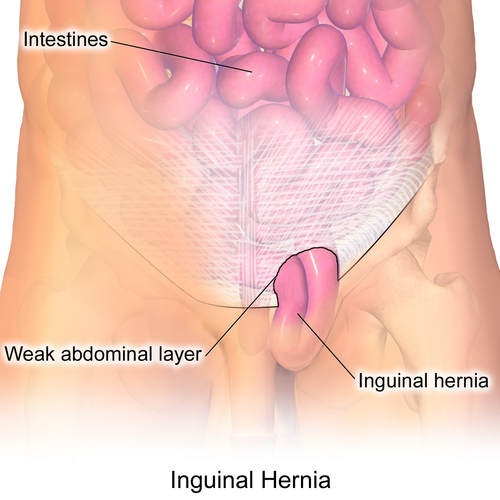
Why Surgery is Recommended
Surgery can address a variety of medical issues, from life-saving interventions to elective procedures that improve quality of life. It’s important for patients to understand why their doctor may recommend surgery and what outcomes they can expect.
How to Prepare for a Medical Procedure
- Know Your Procedure: Researching the specific type of surgery you’re undergoing helps reduce anxiety and allows you to ask informed questions during consultations.
- Follow Preoperative Instructions: Surgeons typically provide guidelines such as fasting before surgery or adjusting medications. Adhering to these instructions is crucial for safety.
- Plan for Recovery: Consider who will assist you after surgery, whether it’s arranging transportation or having someone help with daily tasks during your recovery period.
The Advantages of Minimally Invasive Surgery
Minimally invasive surgery has revolutionized how procedures are performed, offering patients faster recovery times and fewer complications. These techniques often involve smaller incisions, reduced scarring, and a quicker return to normal activities.
The Role of Regular Health Screenings
Screening is a cornerstone of preventive healthcare. Procedures like colonoscopies can detect issues such as polyps or colorectal cancer early, significantly improving treatment outcomes. Regular health check-ups and open communication with your healthcare provider are essential for staying proactive about your health.
Steps for a Quick Recovery
Recovering from surgery requires patience and adherence to your doctor’s recommendations. Here are some general tips to ensure a smooth recovery:
- Follow Discharge Instructions: Carefully read and follow the post-operative care guidelines provided by your surgeon.
- Stay Active (But Don’t Overdo It): Gentle movement, as recommended, can help prevent blood clots and improve healing.
- Eat a Balanced Diet: Proper nutrition supports your body’s recovery process, promoting faster healing.
Key Questions to Ask Before Hernia Repair Surgery
Before undergoing any surgical procedure, it’s important to have a thorough discussion with your surgeon. Key topics to cover include:
- The risks and benefits of the procedure.
- What to expect during the recovery period.
- Alternative treatments, if available.
Contact Us Today
Hernia repair is one of our specialties at Lenox Hill Minimally Invasive Surgery LLP. Call today to schedule your consultation with our expert surgeons.
LENOX HILL MINIALLY INVASIVE SURGERY LLP
155 East 76th Street
New York, NY 10021
Tel: 646-846-1136
Email: lenoxhillsurgeons@gmail.com
Post Surgery Recovery: Tips for a Smooth Healing Process
What are some good post surgery recovery tips? Recovering after surgery is just as important as the procedure itself. Whether you’ve undergone a minimally invasive laparoscopic operation or a more traditional open surgery, the healing process plays a vital role in ensuring optimal results and minimizing complications. While each individual and procedure may differ, there are universal strategies that can help support your recovery and enhance your overall well-being.
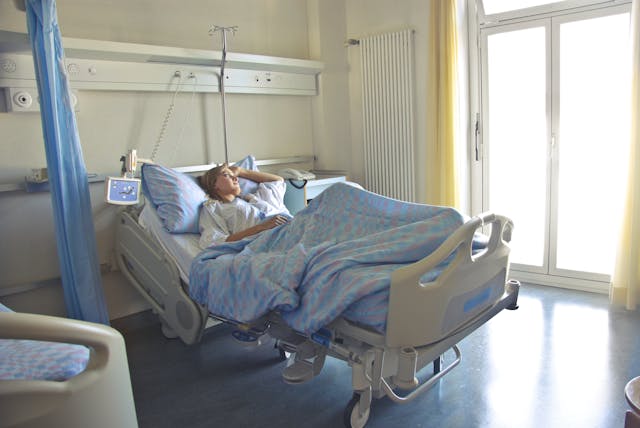
Follow Your Surgeon’s Instructions
Your post-operative instructions are tailored specifically to your surgery and individual health needs. These guidelines may include details on:
- Activity restrictions (e.g., lifting limits, walking requirements)
- Wound care and hygiene
- Medication usage
- Signs of infection or complications
Always follow these instructions closely and don’t hesitate to ask your care team for clarification if anything is unclear.
Pain Management Strategies
Managing pain effectively is essential for maintaining comfort and allowing you to move and heal. Most surgical pain improves gradually over time, but staying on top of it can prevent unnecessary stress and promote a smoother recovery.
- Take prescribed pain medications as directed
- Use ice packs or heating pads if recommended
- Practice deep breathing and relaxation techniques to reduce tension
- Discuss alternative pain relief options such as nerve blocks or over-the-counter medications with your doctor
Avoid waiting until the pain becomes unbearable. It’s more effective to manage pain preventively than to respond reactively.
Support Healing Through Nutrition
Your body requires energy and nutrients to rebuild tissue and fight off infection. A well-balanced diet can aid significantly in your healing process.
- Eat lean proteins like chicken, eggs, beans, and fish to support tissue repair
- Include fiber-rich foods to prevent post-surgical constipation
- Drink plenty of water to stay hydrated
- Limit sugar, alcohol, and processed foods
If you experience appetite loss or nausea, try eating small, frequent meals throughout the day.
Wound Care and Infection Prevention
Surgical site infections are one of the most common complications after surgery—but they’re largely preventable. Proper wound care helps reduce your risk and supports faster healing.
- Keep the surgical area clean and dry as instructed
- Do not remove surgical dressings or sutures unless directed
- Watch for signs of infection, such as redness, swelling, drainage, or fever
- Wash your hands thoroughly before touching the wound site
If you notice any signs of infection or unusual symptoms, contact your surgeon immediately.
Physical Activity and Gradual Mobility
While rest is important, so is movement. Early, gentle activity helps promote blood circulation, prevent blood clots, and reduce the risk of complications.
- Begin with short walks around the house or hospital
- Avoid strenuous activities, heavy lifting, and vigorous exercise until cleared
- Follow any prescribed physical therapy or stretching routines
- Listen to your body—don’t push through fatigue or sharp pain
Resuming normal activities gradually is key to building strength without risking injury.
Mental and Emotional Recovery
Surgery can be physically and emotionally taxing. Anxiety, fatigue, or even depression are common during recovery. Be kind to yourself and allow time for both physical and emotional healing.
- Stay connected with loved ones and accept help when offered
- Practice mindfulness, meditation, or journaling to reduce stress
- Talk to a mental health professional if feelings of sadness or anxiety persist
Healing is a holistic process, and your mental health plays a vital role in your physical recovery.
Know When to Call Your Doctor
While some discomfort is expected after surgery, certain symptoms warrant immediate medical attention. Contact your surgeon if you experience:
- Persistent or worsening pain
- Fever over 101°F (38.3°C)
- Excessive bleeding or wound discharge
- Difficulty breathing or chest pain
- Swelling in your legs or pain in the calf (a possible sign of a blood clot)
Early intervention can prevent minor issues from becoming serious problems.
Conclusion: Take an Active Role in Your Recovery
Recovery is a partnership between you and your surgical team. By staying informed, following recommendations, and listening to your body, you can set yourself up for a safe and successful healing process. Every step you take toward recovery matters—and with patience and consistency, you’ll be back to your routine feeling stronger than ever.
Need Guidance After Surgery?
If you’re preparing for surgery or currently recovering and want expert care every step of the way, the dedicated team at Lenox Hill Minimally Invasive Surgery PLLC is here for you. From advanced procedures to post-operative support, our mission is to help you heal with confidence.
LENOX HILL MINIMALLY INVASIVE SURGERY PLLC
Dr. Valery Dronsky
117 E 77th Street
New York, NY 10075
646-846-1136
admin@lenoxmis.com
How to Choose the Right Surgeon for Your Procedure
 How to choose the right surgeon for your procedure is one of the most important decisions you’ll make in your healthcare journey. Whether you’re facing a routine operation or a complex surgical intervention, your choice of surgeon can greatly impact the outcome, recovery, and overall experience. In a city like New York, where options are plentiful, knowing what to look for in a qualified and trustworthy surgeon is essential.
How to choose the right surgeon for your procedure is one of the most important decisions you’ll make in your healthcare journey. Whether you’re facing a routine operation or a complex surgical intervention, your choice of surgeon can greatly impact the outcome, recovery, and overall experience. In a city like New York, where options are plentiful, knowing what to look for in a qualified and trustworthy surgeon is essential.
Let’s walk through the key considerations for choosing the right surgeon, empowering you to make a confident and informed decision about your care.
Why Your Surgeon Choice Matters
The success of a surgical procedure is influenced not just by the procedure itself, but by the skill, experience, and approach of the surgeon performing it. The right surgeon can help you achieve:
- Optimal surgical outcomes with minimal complications
- A smoother, faster recovery
- Clear communication and peace of mind
- A personalized treatment plan tailored to your unique condition
On the other hand, choosing a surgeon who lacks specialization or experience in your particular procedure can increase risks and lead to a less satisfactory experience.
1. Verify Board Certification and Credentials
Start by confirming that the surgeon is board-certified by the American Board of Surgery or an appropriate specialty board. Board certification ensures the surgeon has completed extensive education and training and has passed rigorous exams.
Additionally, look for:
- Medical school and residency background
- Fellowship training in a subspecialty, if applicable
- Hospital affiliations (reputable institutions often have stricter credentialing)
2. Consider the Surgeon’s Experience with Your Procedure
Not all surgeons perform every type of surgery. Ideally, you want a specialist who performs your specific procedure regularly and has a proven track record of success.
Ask questions like:
- How many times have you performed this procedure?
- What are your success and complication rates?
- Have you treated patients with my specific condition?
Experience matters—surgeons who perform a high volume of specific procedures generally achieve better outcomes.
3. Evaluate the Use of Modern Techniques
The field of surgery continues to evolve, with many procedures now performed using minimally invasive or robotic techniques. These methods often result in:
- Smaller incisions
- Less postoperative pain
- Faster recovery times
- Reduced risk of infection
Ask if your procedure can be done using laparoscopic or robotic-assisted approaches and whether the surgeon is experienced with the latest technology.
4. Read Patient Reviews and Testimonials
Online reviews can provide insight into a surgeon’s bedside manner, communication skills, and the quality of their support team. While every practice may have a range of reviews, consistently positive feedback is a strong indicator of a patient-focused and skilled surgeon.
Look for reviews that mention:
- Patient satisfaction with outcomes
- Responsiveness to questions and concerns
- Clarity in explaining procedures and risks
5. Evaluate Communication and Comfort Level
Surgery can be a stressful experience. It’s important to feel comfortable with your surgeon and confident in their ability to guide you through the process. During your consultation, assess how well they:
- Listen to your concerns
- Explain procedures clearly and thoroughly
- Answer your questions without rushing
- Demonstrate empathy and professionalism
Your surgeon should be someone who values shared decision-making and includes you in the treatment planning process.
6. Understand the Practice’s Support and Follow-Up
A great surgical team includes more than just the surgeon. Consider the support offered by the practice, such as:
- Preoperative education and preparation
- Postoperative follow-up and care
- Access to nurses, physician assistants, and care coordinators
- Availability for questions and emergencies
The right team ensures continuity of care and a positive experience from start to finish.
7. Insurance and Logistics
While quality should never be compromised, make sure the surgeon accepts your insurance and that the associated hospitals or surgical centers are conveniently located and accredited.
Verify:
- Accepted insurance plans
- Availability of financing options, if needed
- Scheduling flexibility
Conclusion: Choose with Confidence
Choosing the right surgeon is a critical step toward a successful surgical outcome and a smoother recovery. By doing your research, asking the right questions, and trusting your instincts, you can feel confident in your decision. Take your time, explore your options, and never hesitate to seek a second opinion if needed.
If you’re in the New York City area and looking for expert surgical care delivered with compassion and precision, we welcome you to schedule a consultation with Dr. Valery Dronsky and the expert team at Lenox Hill Minimally Invasive Surgery.
Contact Information
LENOX HILL MINIMALLY INVASIVE SURGERY PLLC
Dr. Valery Dronsky
117 E 77th Street
New York, NY 10075
646-846-1136
admin@lenoxmis.com
Visit our website for more information:
https://www.lenoxhillminimallyinvasivesurgery.com
Advanced Techniques in Minimally Invasive Surgery
Here we’ll explore the most advanced techniques in minimally invasive surgery, their benefits, and how they’re being used to improve patient outcomes across a wide range of general surgical procedures. Minimally invasive surgery (MIS) has transformed modern medicine by offering patients safer procedures, shorter recovery times, and better cosmetic outcomes. As surgical technology evolves, so do the techniques that surgeons use to treat complex conditions with minimal disruption to the body. Today’s most advanced MIS methods utilize high-definition imaging, robotics, and refined instrumentation to provide extraordinary precision and reduce the risk of complications.

What Is Minimally Invasive Surgery?
Minimally invasive surgery refers to any surgical procedure performed through small incisions using specialized instruments and guided imaging. Unlike traditional open surgery—which requires large incisions and often longer healing—MIS techniques aim to achieve the same or better clinical results with less trauma to the body.
Common forms of MIS include:
- Laparoscopic surgery
- Robotic-assisted surgery
- Endoscopic procedures
- Single-incision laparoscopic surgery (SILS)
Laparoscopic Surgery: The Foundation of MIS
Laparoscopic surgery remains the most widely used minimally invasive technique. Surgeons make small incisions and insert a camera (laparoscope) along with surgical instruments to perform the procedure. A video monitor displays high-resolution images, allowing the surgeon to navigate internal structures with precision.
Common laparoscopic procedures include:
- Gallbladder removal (cholecystectomy)
- Appendectomy
- Hernia repair
- Colon and small intestine surgery
- Gynecologic and urologic procedures
Benefits of laparoscopic surgery include reduced postoperative pain, faster recovery, and a lower risk of infection.
Robotic-Assisted Surgery: Enhancing Precision
Robotic-assisted surgery represents the next frontier in minimally invasive techniques. The surgeon controls robotic arms from a console while viewing the surgical site in 3D high-definition. This approach allows for greater dexterity, flexibility, and control than the human hand alone.
Robotic surgery is especially effective for:
- Complex hernia repairs
- Colorectal surgery
- Adrenal, thyroid, and pancreatic surgery
- Reoperations and scar tissue removal
Advantages of robotic-assisted surgery include:
- Greater precision in delicate areas
- Enhanced visualization of anatomy
- Reduced risk of complications
- Improved cosmetic results due to smaller incisions
Single-Incision Laparoscopic Surgery (SILS)
SILS is a highly advanced technique that uses a single incision—usually through the belly button—to perform surgery. This method is even less invasive than traditional laparoscopy and offers excellent cosmetic results.
Benefits of SILS:
- Virtually scarless procedures
- Shorter operative times in select patients
- Faster return to normal activities
SILS is currently used for selected patients undergoing appendectomy, cholecystectomy, and certain gynecologic procedures.
Endoscopic Procedures: Non-Surgical Solutions
Endoscopy is another form of minimally invasive technique that uses a flexible tube with a camera to diagnose and sometimes treat conditions inside the digestive tract.
Advanced endoscopic procedures include:
- Endoscopic mucosal resection (EMR)
- Endoscopic retrograde cholangiopancreatography (ERCP)
- Endoscopic sleeve gastroplasty (ESG) for weight loss
These approaches allow some conditions to be treated without any incisions at all.
Technological Advancements Supporting MIS
Ongoing innovation is making MIS safer and more effective. Technologies that support advanced minimally invasive surgery include:
- 3D imaging and real-time navigation
- High-definition and 4K video systems
- Fluorescence-guided surgery for better visualization of tissues
- Enhanced energy devices that seal vessels and minimize bleeding
These tools allow surgeons to perform procedures with unmatched accuracy and patient safety.
Common Conditions Treated with Advanced MIS
Minimally invasive techniques are now used for a broad spectrum of general surgical conditions, including:
- Gallstones and gallbladder inflammation
- Appendicitis
- Hernias (inguinal, ventral, umbilical)
- Gastroesophageal reflux disease (GERD)
- Colon and rectal cancer
- Pancreatic and liver tumors
- Adrenal and thyroid nodules
Patients with these conditions often benefit from quicker recovery, less postoperative discomfort, and better overall outcomes.
Conclusion: Advancing Patient Care with Modern Surgical Techniques
Advanced minimally invasive techniques have dramatically improved the landscape of general surgery. From laparoscopic and robotic-assisted procedures to SILS and endoscopy, these approaches offer safer, more effective options for treating a wide range of conditions. Patients experience less pain, faster recovery, and reduced complications—allowing them to return to their daily lives sooner and with fewer limitations.
If you are exploring surgical options in NYC, consider a consultation to determine whether a minimally invasive approach is right for your condition.
Contact Information
LENOX HILL SURGEONS LLP
155 East 76th Street
New York, NY 10021
Tel: 646-846-1136
Email: lenoxhillsurgeons@gmail.com
Why Lenox Hill Minimally Invasive Surgery PLLC is a Top Choice for NYC Patients
 When selecting a surgical team in New York City, Lenox Hill Minimally Invasive Surgery PLLC, led by Dr. Valery Dronsky, provides experience, innovation, and compassionate care. The practice has earned its reputation as a trusted surgical practice by providing top-tier, patient-centered care using advanced minimally invasive techniques. For those seeking general surgery with less pain, faster recovery, and superior outcomes, this practice is a standout choice.
When selecting a surgical team in New York City, Lenox Hill Minimally Invasive Surgery PLLC, led by Dr. Valery Dronsky, provides experience, innovation, and compassionate care. The practice has earned its reputation as a trusted surgical practice by providing top-tier, patient-centered care using advanced minimally invasive techniques. For those seeking general surgery with less pain, faster recovery, and superior outcomes, this practice is a standout choice.
Here’s why Lenox Hill Minimally Invasive Surgery PLLC is a preferred option for patients throughout NYC.
1. Expertise in Minimally Invasive Techniques
At Lenox Hill Minimally Invasive Surgery PLLC, the focus is on laparoscopic and robotic-assisted surgeries. These modern techniques offer substantial advantages over traditional open surgery, including:
- Smaller incisions and less scarring
- Reduced post-operative pain
- Lower risk of infection and complications
- Shorter hospital stays, often allowing same-day discharge
- Faster recovery and quicker return to daily activities
The practice is committed to offering the latest in surgical innovation to help patients heal faster and with fewer risks.
2. Comprehensive Range of Surgical Procedures
Lenox Hill Minimally Invasive Surgery PLLC offers a wide spectrum of general surgical services, making it a convenient, one-stop solution for many patients. Common procedures include:
- Hernia repair (inguinal, umbilical, ventral, incisional, femoral, Spigelian)
- Gallbladder removal (cholecystectomy) for gallstones and gallbladder disease
- Appendectomy for appendicitis
- Colon and small intestine surgery for cancer, diverticulitis, and Crohn’s disease
- Adrenal gland and thyroid surgery
- Liver and pancreatic procedures for tumors and cysts
- Esophageal surgery for GERD and hiatal hernias
- Soft tissue and skin lesion excision
This comprehensive expertise allows patients to receive specialized care without the need for multiple referrals.
3. Personalized, Compassionate Patient Care
At Lenox Hill Minimally Invasive Surgery PLLC, patients are treated as individuals, not just cases. Dr. Dronsky and his team provide a warm, supportive environment where each patient’s concerns are heard and addressed.
- Thorough pre-operative consultations with clear explanations
- Accessible, responsive staff to answer questions
- Tailored surgical plans based on each patient’s medical history and lifestyle
This patient-first approach has made the practice a trusted choice for families across New York City.
4. Advanced Robotic-Assisted Surgery
Dr. Dronsky is highly skilled in robotic-assisted surgical techniques that provide even greater precision than traditional laparoscopy.
- Enhanced dexterity for delicate and complex procedures
- 3D high-definition visualization for improved accuracy
- Less surgical trauma to surrounding tissues
Robotic surgery is often preferred for hernia repairs, colorectal surgeries, and other abdominal procedures where precision can significantly improve patient outcomes.
5. Convenient Manhattan Location
Located in the Upper East Side of Manhattan, Lenox Hill Minimally Invasive Surgery PLLC offers easy access to patients throughout the city.
- Close to Lenox Hill Hospital and other top medical facilities
- Accessible by subway, bus, and car
- Comfortable, modern office setting
The convenient location makes it easier for patients to attend consultations, undergo procedures, and complete follow-up appointments without unnecessary travel stress.
6. Seamless Continuity of Care
Lenox Hill Minimally Invasive Surgery PLLC emphasizes comprehensive care from diagnosis through recovery. Patients receive detailed guidance before, during, and after surgery.
- Coordinated care with primary physicians and specialists
- Personalized post-operative instructions to ensure smooth healing
- Flexible, responsive follow-up scheduling
This continuity of care helps patients feel fully supported throughout their surgical journey.
7. Trusted by NYC’s Diverse Patient Community
Dr. Dronsky and his team proudly serve New York City’s diverse, multicultural population with sensitivity and respect.
- Culturally competent care and language support when needed
- Respect for individual patient preferences and backgrounds
- Decades of experience working with patients of all ages and health needs
Patients consistently report positive experiences, citing the team’s kindness, professionalism, and dedication to high-quality care.
8. Exceptional Surgical Outcomes
Minimally invasive techniques, coupled with meticulous surgical skill, lead to excellent patient outcomes at Lenox Hill Minimally Invasive Surgery PLLC.
- High patient satisfaction and low complication rates
- Minimal postoperative pain and faster recovery times
- Lower risks of surgical site infections and hernia recurrence
Patients often return to work and normal activities sooner compared to traditional open surgery.
Conclusion: Lenox Hill Minimally Invasive Surgery, Your Trusted Surgical Partner in NYC
 When it comes to choosing surgical care in New York City, Lenox Hill Minimally Invasive Surgery PLLC stands out for its blend of surgical expertise, advanced technology, and compassionate, patient-focused care. Whether you need hernia repair, gallbladder surgery, or complex abdominal procedures, you can trust Dr. Valery Dronsky and his team to provide exceptional outcomes with minimal disruption to your life.
When it comes to choosing surgical care in New York City, Lenox Hill Minimally Invasive Surgery PLLC stands out for its blend of surgical expertise, advanced technology, and compassionate, patient-focused care. Whether you need hernia repair, gallbladder surgery, or complex abdominal procedures, you can trust Dr. Valery Dronsky and his team to provide exceptional outcomes with minimal disruption to your life.
If you are considering surgery, schedule your consultation today and experience the superior care that makes Lenox Hill Minimally Invasive Surgery PLLC a top choice for NYC patients.
Contact Information
LENOX HILL MINIMALLY INVASIVE SURGERY PLLC
Dr. Valery Dronsky
117 E 77th Street
New York, NY 10075
646-846-1136
admin@lenoxmis.com
Visit our website for more information:
https://www.lenoxhillminimallyinvasivesurgery.com
The Importance of Regular Screenings and Early Detection
Regular screenings can lead to early detection and timely intervention for improving health outcomes and reducing mortality rates associated with serious medical conditions. Regular screenings play a crucial role in identifying diseases—particularly cancer and other chronic illnesses—at their earliest and most treatable stages. For patients in New York City and beyond, understanding the value of preventive healthcare can lead to longer, healthier lives.
In this post, we explore why regular screenings are essential, the conditions they help detect, and how general surgeons often play a critical role in early diagnosis and treatment.

Why Regular Screenings Matter
Many serious conditions, such as cancer, gastrointestinal diseases, and endocrine disorders, can develop silently—showing little or no symptoms until they reach advanced stages. Screenings are designed to:
- Identify conditions before symptoms appear
- Catch diseases in their early stages when treatment is most effective
- Prevent complications by enabling timely medical or surgical intervention
- Provide peace of mind for individuals at higher risk
- Reduce overall healthcare costs by avoiding emergency care and extensive treatments
Regular screenings are a cornerstone of preventive healthcare and can lead to significantly better outcomes for patients.
Conditions Commonly Detected Through Screenings
General surgeons are often involved in the diagnosis and treatment of conditions detected through screenings. Some of the most common include:
- Colorectal Cancer: Colonoscopies are essential for identifying precancerous polyps and early-stage colon cancer. If detected early, the survival rate is significantly higher.
- Breast Cancer: Mammograms help detect tumors before they become palpable. Surgical removal or biopsy may follow abnormal findings.
- Skin Cancer: Regular dermatologic exams and surgical excision of suspicious moles or lesions help prevent the spread of melanoma and other skin cancers.
- Thyroid Nodules: Ultrasound and biopsy can uncover benign or malignant nodules. Surgical intervention may be required based on the results.
- Gallbladder Disease: Ultrasounds can detect gallstones or signs of gallbladder dysfunction. In symptomatic cases, a cholecystectomy (gallbladder removal) may be recommended.
In many cases, early diagnosis allows for minimally invasive surgical treatment, reducing recovery time and improving quality of life.
Recommended Screening Guidelines
Healthcare providers base screening recommendations on age, gender, family history, lifestyle, and existing medical conditions. Below are general guidelines for adults:
- Colorectal Cancer: Begin regular screening at age 45 (earlier with family history), typically via colonoscopy every 10 years or other stool-based tests more frequently.
- Breast Cancer: Mammograms every 1–2 years for women starting at age 40–50, depending on individual risk factors.
- Skin Cancer: Annual skin checks for those with high sun exposure, fair skin, or personal/family history of skin cancer.
- Thyroid Health: Periodic neck exams and ultrasounds, especially for those with family history or exposure to radiation.
- Abdominal Aortic Aneurysm: A one-time ultrasound for men aged 65–75 who have ever smoked.
It’s important to discuss personalized screening schedules with your primary care physician or specialist based on your unique health profile.
The Role of General Surgeons in Early Detection
General surgeons often play a pivotal role when screening results indicate a need for further evaluation or treatment. They may:
- Perform diagnostic biopsies of suspicious tissues
- Recommend and conduct minimally invasive exploratory procedures (e.g., laparoscopy)
- Remove tumors or abnormal growths
- Collaborate with oncologists, radiologists, and other specialists for coordinated care
Their expertise ensures that patients receive timely and effective treatment when surgical intervention is necessary.
Taking Action: What Patients Should Do
Proactively managing your health starts with awareness and regular communication with your healthcare team. Here are steps to ensure you’re on the right track:
- Know your personal and family medical history
- Follow the recommended screening schedule for your age and risk profile
- Report any unusual symptoms, such as unexplained weight loss, persistent pain, or changes in bowel habits
- Choose qualified specialists and surgeons when screenings suggest further intervention
Being proactive about screening not only enhances your chances of early detection but may also prevent certain diseases altogether.
Conclusion: Early Detection Saves Lives
Regular screenings and early detection are essential tools in modern medicine that can significantly impact your long-term health. By identifying and treating medical conditions before they progress, patients are given the best possible chance at successful outcomes and full recovery. When surgical treatment is required, having an experienced general surgeon by your side ensures you’re in capable hands from diagnosis to recovery.
For those in New York City seeking expert surgical evaluation and treatment, our team is here to provide compassionate, state-of-the-art care tailored to your needs.
Contact Information
LENOX HILL MINIMALLY INVASIVE SURGERY PLLC
Dr. Valery Dronsky
117 E 77th Street
New York, NY 10075
646-846-1136
admin@lenoxmis.com
Visit our website for more information:
https://www.lenoxhillminimallyinvasivesurgery.com
Understanding the Role of General Surgeons in Modern Healthcare
General surgeons play a vital and versatile role in the modern healthcare system. They are not only responsible for performing a wide range of surgical procedures but also serve as essential partners in the diagnosis, treatment, and post-operative care of many conditions. Unlike surgical specialists who focus on specific organs or systems, general surgeons are trained to manage diseases across multiple areas of the body, often providing life-saving interventions.
This guide will explore the responsibilities, specialties, and importance of general surgeons in today’s healthcare landscape.
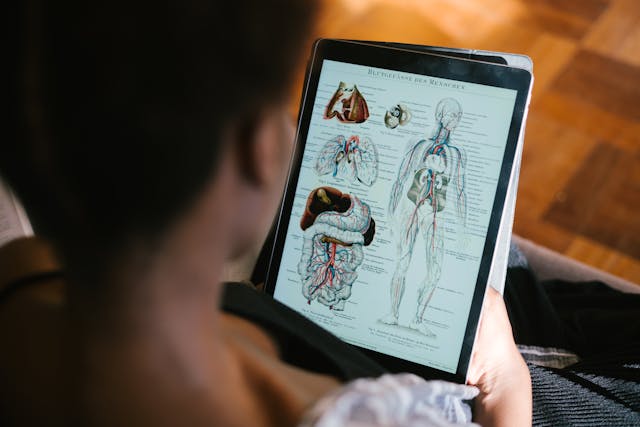
What Is a General Surgeon?
A general surgeon is a physician trained to diagnose, treat, and manage patients who require surgery for conditions involving the abdomen, digestive tract, skin, soft tissues, endocrine system, and more.
Core Areas of General Surgery
- Digestive system (stomach, intestines, gallbladder, liver, appendix, esophagus)
- Hernias and abdominal wall defects
- Soft tissue and skin lesions
- Endocrine system (thyroid, adrenal glands)
- Emergency trauma and critical care surgery
General surgeons also frequently collaborate with specialists in oncology, gastroenterology, and endocrinology to ensure comprehensive care.
The Evolving Role of General Surgeons
While general surgeons have always been crucial in healthcare, their role has expanded significantly with advancements in minimally invasive and robotic-assisted surgical techniques.
Key Responsibilities of Modern General Surgeons
- Diagnosis: General surgeons often provide the initial diagnosis and determine if surgery is necessary.
- Surgical Intervention: They perform procedures ranging from routine hernia repairs to complex gastrointestinal surgeries.
- Minimally Invasive Techniques: Many general surgeons specialize in laparoscopic and robotic-assisted surgeries, which offer smaller incisions, quicker recovery, and less postoperative pain.
- Emergency Care: General surgeons are on the front lines for urgent cases such as appendicitis, traumatic injuries, and bowel obstructions.
- Post-Operative Care: They manage patient recovery, monitor for complications, and guide patients through rehabilitation.
Minimally Invasive Surgery: A Modern Advancement
One of the most significant developments in general surgery is the rise of minimally invasive procedures, which have transformed the patient experience.
Benefits of Minimally Invasive Surgery
- Smaller incisions and minimal scarring
- Reduced postoperative pain
- Shorter hospital stays
- Faster return to normal activities
- Lower risk of infection and complications
Procedures like laparoscopic hernia repair, gallbladder removal, and colon surgery are now routinely performed using these advanced techniques.
Common Conditions Treated by General Surgeons
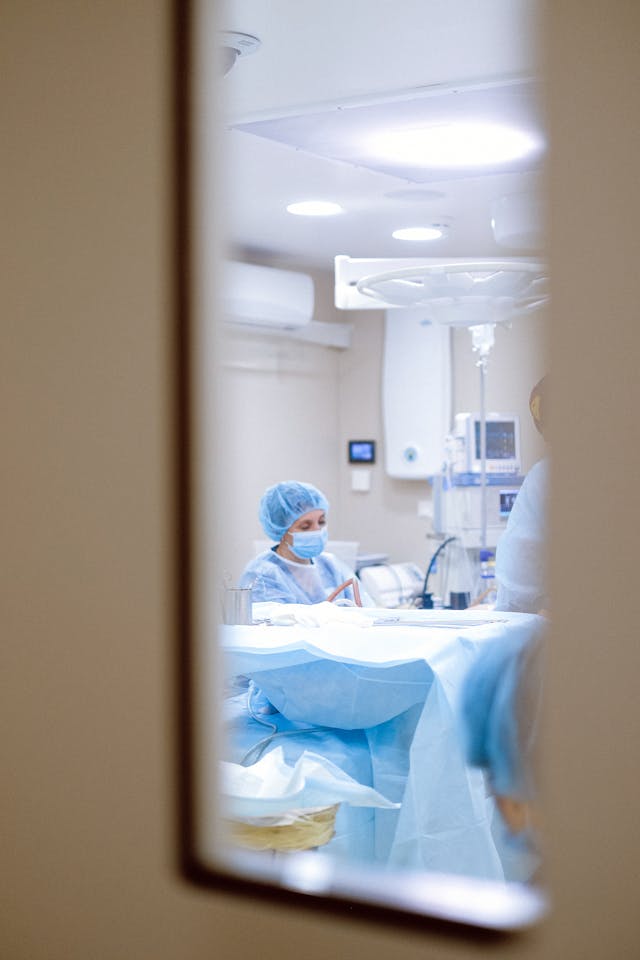 General surgeons handle a wide variety of conditions, many of which can have significant impacts on a patient’s quality of life if not treated promptly.
General surgeons handle a wide variety of conditions, many of which can have significant impacts on a patient’s quality of life if not treated promptly.
- Hernias (inguinal, umbilical, incisional)
- Gallbladder disease (cholecystitis, gallstones)
- Appendicitis
- Colon and rectal diseases (diverticulitis, colorectal cancer)
- Gastroesophageal reflux disease (GERD)
- Thyroid and adrenal gland disorders
- Skin and soft tissue tumors (lipomas, cysts, skin cancers)
Many of these surgeries are now performed with laparoscopic or robotic assistance, offering patients better outcomes and quicker recoveries.
General Surgeons and Emergency Care
General surgeons are frequently involved in emergency surgical situations, often working in trauma centers or on-call at hospitals.
Examples of Emergency Surgeries
- Emergency appendectomy for appendicitis
- Exploratory surgery for abdominal trauma
- Surgical repair of bowel obstructions
- Emergency hernia repairs
Their ability to act quickly and efficiently can make the difference between life and death in critical situations.
Multidisciplinary Collaboration
General surgeons are essential members of multidisciplinary healthcare teams. They collaborate closely with:
- Primary care physicians for preoperative assessments
- Oncologists for cancer treatment planning
- Gastroenterologists for digestive health management
- Endocrinologists for hormonal disorders requiring surgery
This team-based approach ensures that patients receive comprehensive, coordinated care.
Why General Surgery Matters
General surgeons provide more than just surgical skills—they offer holistic patient management, from initial diagnosis to long-term follow-up.
Key Contributions of General Surgeons
- Providing preventive care, including cancer screenings
- Offering life-saving emergency interventions
- Improving patient outcomes with minimally invasive procedures
- Managing complex chronic conditions requiring surgical solutions
Without general surgeons, many patients would face prolonged suffering or life-threatening complications from common but serious conditions.
Conclusion: General Surgeons Are Integral in Modern Healthcare
The role of general surgeons has never been more essential. Whether performing routine procedures, handling emergencies, or delivering advanced laparoscopic and robotic surgeries, they are crucial to the smooth functioning of the healthcare system.
If you are in need of expert general surgical care, including minimally invasive options, the dedicated team at Lenox Hill Minimally Invasive Surgery PLLC is ready to help. Dr. Valery Dronsky and his experienced team offer personalized, compassionate surgical solutions to ensure the best possible outcomes.
Contact Information
LENOX HILL MINIMALLY INVASIVE SURGERY PLLC
Dr. Valery Dronsky
117 E 77th Street
New York, NY 10075
646-846-1136
admin@lenoxmis.com
Visit our website for more information:
https://www.lenoxhillminimallyinvasivesurgery.com
Preparing for Surgery: What Patients Need to Know
This guide covers essential steps and considerations when preparing for surgery, from preoperative consultations to post-surgical recovery. Undergoing surgery—whether minimally invasive or traditional—is a major medical event that requires preparation, both physically and mentally. Whether it’s a planned procedure like a hernia repair or an urgent appendectomy, knowing what to expect can help reduce anxiety and improve your outcome.
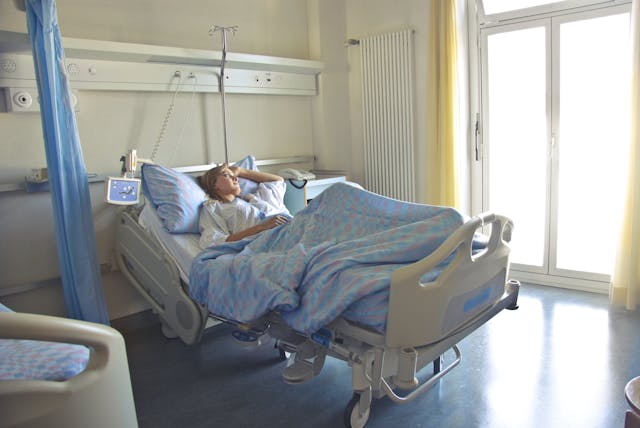
Step 1: Understand the Procedure
The first step in preparing for surgery is to fully understand what the procedure involves. Your surgeon will explain:
- The goal of the surgery
- How the procedure will be performed (laparoscopic, robotic-assisted, or open surgery)
- Expected benefits and possible risks
- Recovery timeline and potential complications
Don’t hesitate to ask questions or request additional resources to help you understand your condition and treatment.
Step 2: Attend a Preoperative Consultation
Before surgery, you’ll have a comprehensive pre-op visit that may include:
- Physical exam
- Blood tests and imaging (X-ray, CT scan, EKG)
- Discussion of your medical history and medications
- Instructions on fasting and medication adjustments
This appointment ensures you’re medically fit for surgery and helps the surgical team tailor the care plan to your needs.
Step 3: Prepare Your Body
Optimizing your health before surgery can lead to faster recovery and fewer complications. Some preparation tips include:
- Quit smoking: Smoking impairs healing and increases the risk of infections.
- Stay active: Light exercise can improve circulation and immune function.
- Eat a balanced diet: Proper nutrition supports healing and energy levels.
- Manage chronic conditions: Keep diabetes, high blood pressure, or other illnesses under control.
Your doctor may advise you to stop taking certain medications such as blood thinners or NSAIDs before surgery.
Step 4: Follow Pre-Surgery Instructions
Adhering to all pre-op instructions is crucial for a safe and successful surgery. You may be instructed to:
- Fast for at least 8 hours prior to surgery (no food or drink)
- Shower with antibacterial soap the night before and the morning of surgery
- Avoid applying lotions or cosmetics on the day of surgery
- Remove contact lenses, jewelry, and nail polish
- Arrange for a friend or family member to drive you home afterward
Make sure to notify your doctor if you experience fever, flu symptoms, or new health issues in the days leading up to surgery.
Step 5: Pack Smart for the Hospital
If your surgery requires a hospital stay, packing appropriately will make your experience more comfortable. Consider bringing:
- Photo ID and insurance information
- Comfortable clothing and non-slip socks
- Toiletries (toothbrush, face wipes, etc.)
- Phone and charger
- List of medications and allergies
Leave valuables at home, and be sure to label any personal items.
Step 6: Mental and Emotional Preparation
Feeling anxious before surgery is completely normal. Managing stress can improve healing and overall well-being. Strategies to reduce anxiety include:
- Deep breathing or mindfulness meditation
- Discussing your concerns with your surgical team
- Listening to music or reading to stay distracted
- Relying on your support system for encouragement
Some patients benefit from speaking with a counselor before undergoing surgery, especially if they’ve had negative experiences in the past.
Step 7: Understand What Happens on Surgery Day
On the day of surgery, you’ll be admitted to the surgical facility and prepped for the procedure. This includes:
- Changing into a hospital gown
- Meeting your anesthesiologist
- Receiving an IV for medications and fluids
- Final verification of your identity and procedure site
Once in the operating room, you’ll be given anesthesia and monitored closely throughout the procedure.
Step 8: Plan for Postoperative Recovery
Knowing what to expect after surgery helps you prepare your home and schedule accordingly. Post-op planning should include:
- Stocking up on easy-to-prepare meals
- Arranging for help with chores or childcare
- Filling any prescriptions ahead of time
- Scheduling follow-up appointments
Ask your surgeon about activity restrictions, signs of complications, and when you can return to work or normal routines.
Preparing for Surgery Conclusion: Preparation Makes a Difference
Successful surgical outcomes depend not only on the skill of the surgical team but also on how well you prepare. By following your surgeon’s guidance and taking proactive steps, you’ll set yourself up for a smoother, quicker recovery.
If you’re planning to undergo surgery and want expert care every step of the way, the team at Lenox Hill Minimally Invasive Surgery PLLC is here to help. We prioritize patient education, safety, and comfort to ensure the best possible surgical experience.
Contact Information
LENOX HILL MINIMALLY INVASIVE SURGERY PLLC
Dr. Valery Dronsky
117 E 77th Street
New York, NY 10075
646-846-1136
admin@lenoxmis.com
Visit us online: https://www.lenoxhillminimallyinvasivesurgery.com
Top Surgical Procedures Performed at Lenox Hill Minimally Invasive Surgery PLLC
Below is a comprehensive guide to the top general surgical procedures we perform, the conditions they treat, and what patients can expect. At Lenox Hill Minimally Invasive Surgery PLLC, our mission is to provide patients with safe, effective, and innovative surgical care using advanced minimally invasive techniques. Led by Dr. Valery Dronsky, our practice specializes in procedures that reduce recovery time, minimize discomfort, and improve overall outcomes.
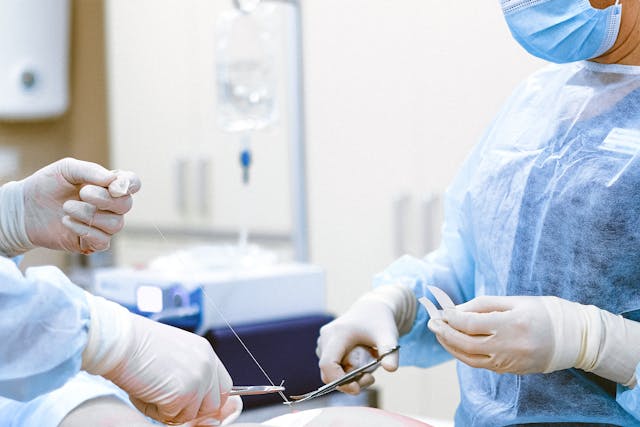
1. Hernia Repair Surgery
Hernias are one of the most common general surgery issues, occurring when an internal organ or tissue pushes through a weakened muscle or fascia.
- Inguinal hernia (groin area)
- Umbilical hernia (belly button)
- Incisional hernia (previous surgical sites)
- Ventral, femoral, and Spigelian hernias
We utilize laparoscopic and robotic-assisted hernia repair, which involve small incisions, less pain, and quicker return to normal activities compared to traditional open repair. Mesh is often used to reinforce the abdominal wall and reduce recurrence.
2. Gallbladder Removal (Cholecystectomy)
Gallbladder disease, often caused by gallstones, can lead to severe abdominal pain, nausea, and digestive problems.
Laparoscopic cholecystectomy is the standard treatment for gallbladder removal. This procedure involves inserting small instruments and a camera through tiny incisions to safely remove the gallbladder. Most patients go home the same day and experience a fast recovery with minimal scarring.
3. Appendectomy
An appendectomy is performed to treat appendicitis, an inflammation of the appendix that can become life-threatening if left untreated. Symptoms include severe right lower abdominal pain, fever, and nausea.
We perform emergency laparoscopic appendectomies, which allow for faster healing and fewer complications than traditional surgery. Prompt treatment helps prevent rupture and peritonitis.
4. Colon Surgery
Colon conditions such as diverticulitis, colon cancer, or inflammatory bowel diseases (Crohn’s and ulcerative colitis) often require surgical management.
Minimally invasive colon resections involve removing diseased portions of the colon and reconnecting the healthy segments. Benefits include:
- Reduced risk of infection
- Faster bowel function return
- Shorter hospital stay
Our team provides personalized care plans and collaborates closely with GI specialists and oncologists when necessary.
5. Adrenalectomy (Adrenal Gland Surgery)
The adrenal glands, located above each kidney, can develop tumors or become overactive, causing hormone imbalances.
Laparoscopic adrenalectomy is performed to remove tumors and restore hormonal balance. It’s commonly indicated for conditions such as:
- Adrenal adenomas
- Pheochromocytoma
- Primary aldosteronism
This procedure is highly effective and offers minimal downtime.
6. Liver Surgery
Liver surgery may be needed to remove tumors, cysts, or sections of diseased liver tissue.
We perform laparoscopic liver resections for benign and malignant conditions. The liver’s unique ability to regenerate makes partial removal safe in most cases. Liver procedures are also coordinated with hepatologists and oncologists for comprehensive care.
7. Esophageal Surgery
Conditions like GERD, hiatal hernias, and achalasia are treated with esophageal surgery.
One of the most common procedures is laparoscopic Nissen fundoplication, which strengthens the lower esophageal sphincter to prevent acid reflux. We also offer robotic-assisted approaches for added precision and faster recovery.
8. Stomach Surgery
We treat conditions like gastric ulcers, tumors, and gastroparesis through laparoscopic stomach surgeries. Procedures include partial gastrectomy or pyloroplasty, depending on the underlying issue.
Surgical intervention is carefully planned based on diagnostic imaging and patient history.
9. Pancreatic Surgery
Diseases of the pancreas, including cysts, tumors, or chronic pancreatitis, can significantly impact digestion and overall health.
Surgical options include:
- Distal pancreatectomy (removal of the tail of the pancreas)
- Pancreatic cyst drainage or removal
Minimally invasive surgery improves outcomes and reduces recovery times for these complex procedures.
10. Small Intestine Surgery
Surgery may be needed for small bowel obstructions, Crohn’s disease, or tumors. We use laparoscopic techniques to remove the diseased portion and restore normal intestinal function, reducing complications and improving patient comfort.
11. Spleen Surgery (Splenectomy)
Conditions like splenic rupture, enlargement, or blood disorders may necessitate spleen removal. We offer laparoscopic splenectomy, which decreases blood loss and shortens recovery compared to open procedures.
12. Soft Tissue & Skin Surgery
We also perform excisions of lipomas, cysts, sebaceous growths, and other soft tissue masses. These outpatient procedures are done under local or general anesthesia, with minimal scarring and excellent cosmetic outcomes.
Expert Surgical Care You Can Trust
At Lenox Hill Minimally Invasive Surgery PLLC, our focus is on delivering cutting-edge care with compassion and precision. We tailor every surgical plan to the individual and prioritize techniques that lead to faster healing, fewer complications, and superior patient satisfaction.
If you’re considering general surgery and want the best in minimally invasive care, schedule your consultation with Dr. Valery Dronsky today.
Contact Information
LENOX HILL MINIMALLY INVASIVE SURGERY PLLC
Dr. Valery Dronsky
117 E 77th Street
New York, NY 10075
646-846-1136
admin@lenoxmis.com
Visit our website for more information:
https://www.lenoxhillminimallyinvasivesurgery.com
Soft Tissue & Skin Surgery: Procedures for Lesions, Tumors, and Infections
This guide explores common soft tissue and skin conditions that may necessitate surgery, the types of surgical procedures used, and what patients can expect from the recovery process. The skin, the body’s largest organ, and soft tissues play a critical role in protecting us from infections, regulating body temperature, and enabling the sense of touch.… Continue Reading
Minimally Invasive Techniques in General Surgery: Advantages and Benefits
In this guide, we’ll explore what minimally invasive techniques in general surgery involves, the key advantages for patients, and the types of conditions commonly treated using these advanced methods. Minimally invasive surgery has transformed the field of general surgery, offering patients an effective way to address various health conditions with reduced pain, quicker recovery, and… Continue Reading
Spleen Surgery: Surgical Interventions for Splenic Conditions
In this guide, we’ll explore common splenic conditions that may require surgery, the types of surgical interventions available, and what patients can expect during recovery. The spleen is an important organ located in the upper left side of the abdomen. It plays a crucial role in filtering blood, fighting infections, and managing blood cells. Although… Continue Reading
General Surgery For Gastrointestinal Conditions
In this guide, we’ll explore common gastrointestinal conditions that may require surgery, the types of surgeries used to treat them, and the positive impact these procedures can have on patients’ lives. Gastrointestinal (GI) conditions encompass a wide range of disorders that affect the digestive system, including the stomach, intestines, liver, gallbladder, and pancreas. For many… Continue Reading
Small Intestine Surgery: Treatment Options for Intestinal Disorders
This comprehensive guide explores common small intestine disorders that may necessitate surgery, the types of surgical treatments available, and what patients can expect during the recovery process. The small intestine is a crucial part of the digestive system, responsible for absorbing nutrients from food and facilitating digestion. However, certain conditions and disorders can affect the… Continue Reading
General Surgery To Manage Chronic Pain?
Cqn general surgery be used to manage chronic pain? Having constant pain can significantly impact a person’s quality of life, affecting everything from mobility and sleep to mental health and daily functioning. While many individuals turn to medication, physical therapy, and other non-surgical options to manage pain, there are certain conditions where general surgery offers… Continue Reading
Pancreas Surgery: Management of Pancreatic Diseases through Surgery
When is pancreas surgery necessary? The pancreas is a vital organ located behind the stomach, responsible for producing digestive enzymes and regulating blood sugar through hormone production. When pancreatic diseases occur, they can have severe consequences on overall health. For conditions that cannot be managed through medication or lifestyle changes, pancreas surgery often becomes a… Continue Reading
The Role of General Surgery in Cancer Treatment: Latest Approaches
General surgery plays a vital role in the treatment of various types of cancer, often serving as the primary or first-line treatment for many solid tumors. With the rapid advancements in surgical techniques and technology, the field of general surgery has become increasingly effective in addressing cancerous growths, minimizing patient discomfort, and enhancing recovery. For… Continue Reading
Esophagus Surgery: Addressing Esophageal Conditions and Surgical Treatments
What are the major esophageal conditions and surgical treatments? The esophagus, a vital part of the digestive system, is a muscular tube that connects the throat to the stomach. It plays a crucial role in the movement of food and liquids from the mouth to the stomach for digestion. However, several conditions can affect the… Continue Reading
Digestive Disorders and General Surgery: Treatment Options and Success Stories
What are some examples of digestive disorders and general surgery that can treat them? Digestive disorders can significantly impact a person’s quality of life, leading to symptoms like pain, discomfort, and difficulty with nutrition and digestion. While many digestive conditions can be managed with medication and lifestyle changes, some require surgical intervention to resolve the… Continue Reading














